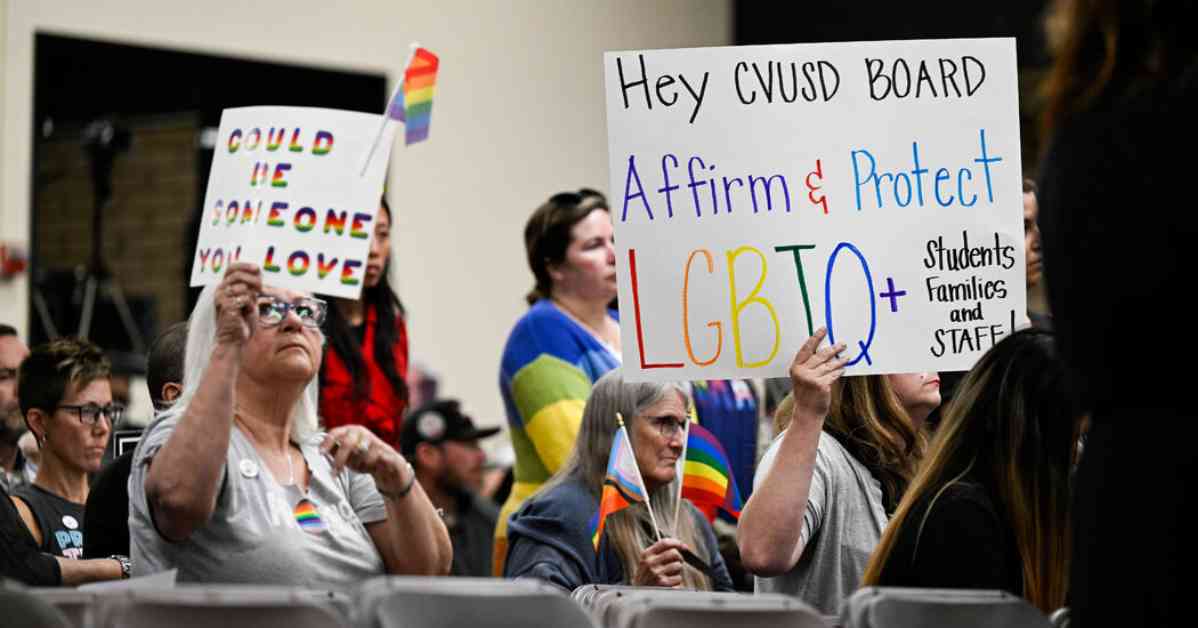In a recent development in California, Governor Gavin Newsom has signed a groundbreaking bill that prohibits educators from notifying parents if their child requests to switch names or pronouns. This move comes after a year where school boards in the state became unexpected battlegrounds in the culture war.
The Chino Valley Unified School District, along with many other districts in California, has been at the center of this debate. The new law is the first of its kind in the nation and is aimed at protecting the privacy and safety of transgender students. LGBTQ organizations have praised this decision, highlighting the importance of supporting students who may fear their parents will not accept their identity.
However, not everyone is in favor of this new law. Conservatives have vowed to challenge it in court, with some even threatening to relocate their businesses out of the state. Elon Musk, the CEO of Tesla, expressed his discontent with the bill signing, stating that it was the “final straw” for him and announcing plans to move the headquarters of X and SpaceX to Texas.
In the past year, several school boards in California, particularly those led by conservative members, implemented policies that required school staff to inform parents if students requested to be addressed by a different name or pronouns. This trend is part of a larger movement known as “parental rights,” which has gained traction in conservative states like Tennessee and North Carolina.
The clash between these policies and the rights of transgender and nonbinary students has sparked a heated debate in California. While conservative leaders see it as a way to uphold parental rights, liberal officials view it as a violation of students’ privacy and an act of outing transgender individuals.
Governor Newsom and State Attorney General Rob Bonta have been actively involved in challenging these policies in court. The passing of this new law by the state legislature marks a significant victory for supporters of LGBTQ rights and advocates for the protection of transgender students.
As California continues to navigate the complex intersection of education, parental rights, and LGBTQ rights, the implications of this new law are likely to reverberate across the state and potentially influence similar debates in other parts of the country. The ongoing legal challenges and reactions from various stakeholders indicate that this issue is far from settled and will continue to shape the educational landscape in California for the foreseeable future.




